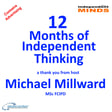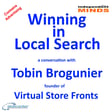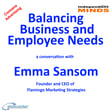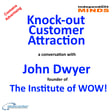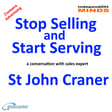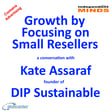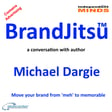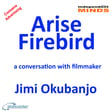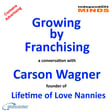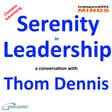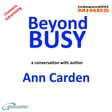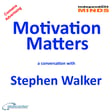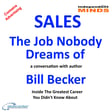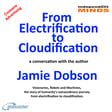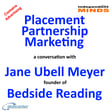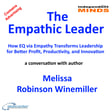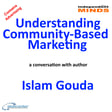
Understanding Transferable Skills – a conversation with Adam Mokhtar
Adam Mokhtar runs Diogel an architecture company in North Wales. But Adam has had a very varied career, ranging from preacher to playing guitar in a rock band that performed at the Manchester MEN Arena.
As you would expect in a conversation about the transferability of skills Adam and host Michael Millward discuss a wide range of subjects as they explore how understanding the skills you have can open doors.
It is not all plain sailing for Adam. He also discusses the hardships that he has experienced, and how these have added to his transferable skillset.
Looking to the future Adam also explains how he intends to raise his sons so that they also enter the workforce understanding how to learn new skills and unlearn old skills so that they can enjoy continuous employment.
This episode of The Independent Minds is useful listening for people who are facing a change and see only the negative outcomes.
The Independent Minds is made on Zencastr.
Zencastr is the all-in-one podcasting platform, on which you can create your podcast in one place and then distribute it to the major platforms.
Zencastr really does make creating content so easy.
If you would like to try podcasting using Zencastr visit zencastr.com/pricing and use our offer code ABECEDER.
Find out more about both Michael Millward and Adam Mokhtar at Abeceder.co.uk
Travel
Colin is based in North Wales, a very beautiful part of the United Kingdom. When I visit North Wales, I make my travel arrangements with The Ultimate Travel Club, because as a member I can access trade prices for flights, hotels and holidays. You can also become a member at a discounted price by using my offer code ABEC79 when you join-up.
Matchmaker.fm
Thank you to the team at Matchmaker.fm the introduction to Adam Mokhtar.
If you are a podcaster looking for interesting guests or if like Adam, you have something very interesting to say Matchmaker.fm is where matches of great hosts and great guests are made. Use our offer code MILW10 for a discount on membership.
Three the network
If you are listening to The Independent Minds on your smart phone, you may like to know that Three has the UK’s Fastest 5G Network with Unlimited Data, so listening on Three means you can wave goodbye to buffering.
Visit Three for information about business and personal telecom solutions from Three, and the special offers available when you quote my referral code WPFNUQHU.
Being a Guest
If you would like to be a guest on The Independent Minds, please contact using the link at Abeceder.co.uk.
We recommend that potential guests take one of the podcasting guest training programmes available from Work Place Learning Centre.
We appreciate every like, download, and subscriber.
Thank you for listening.
